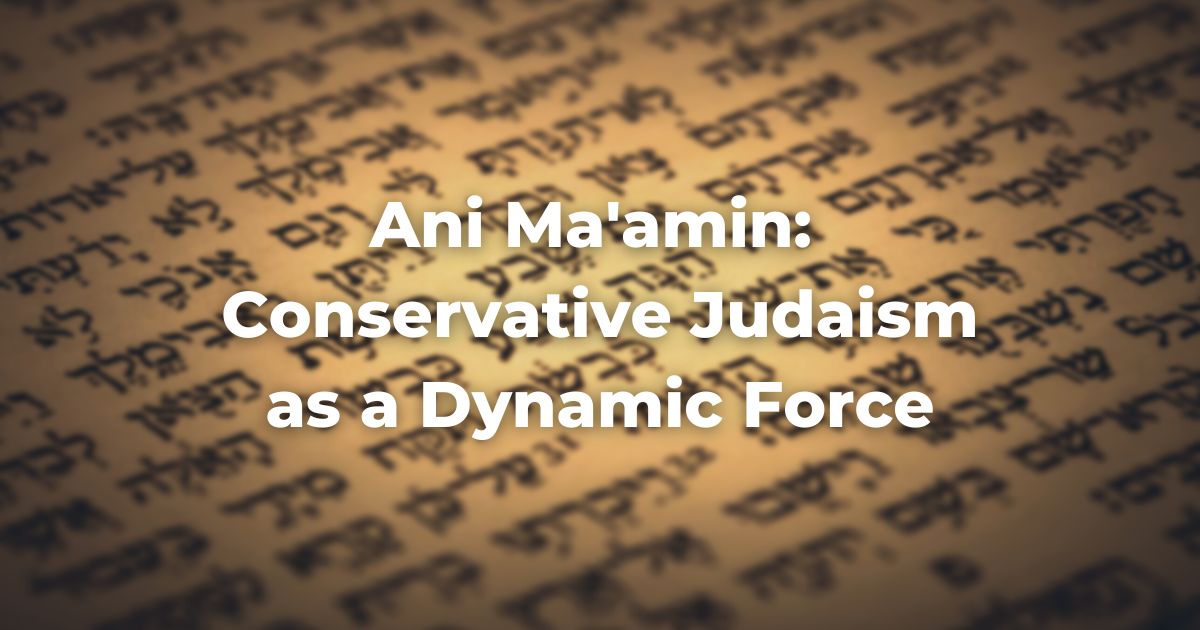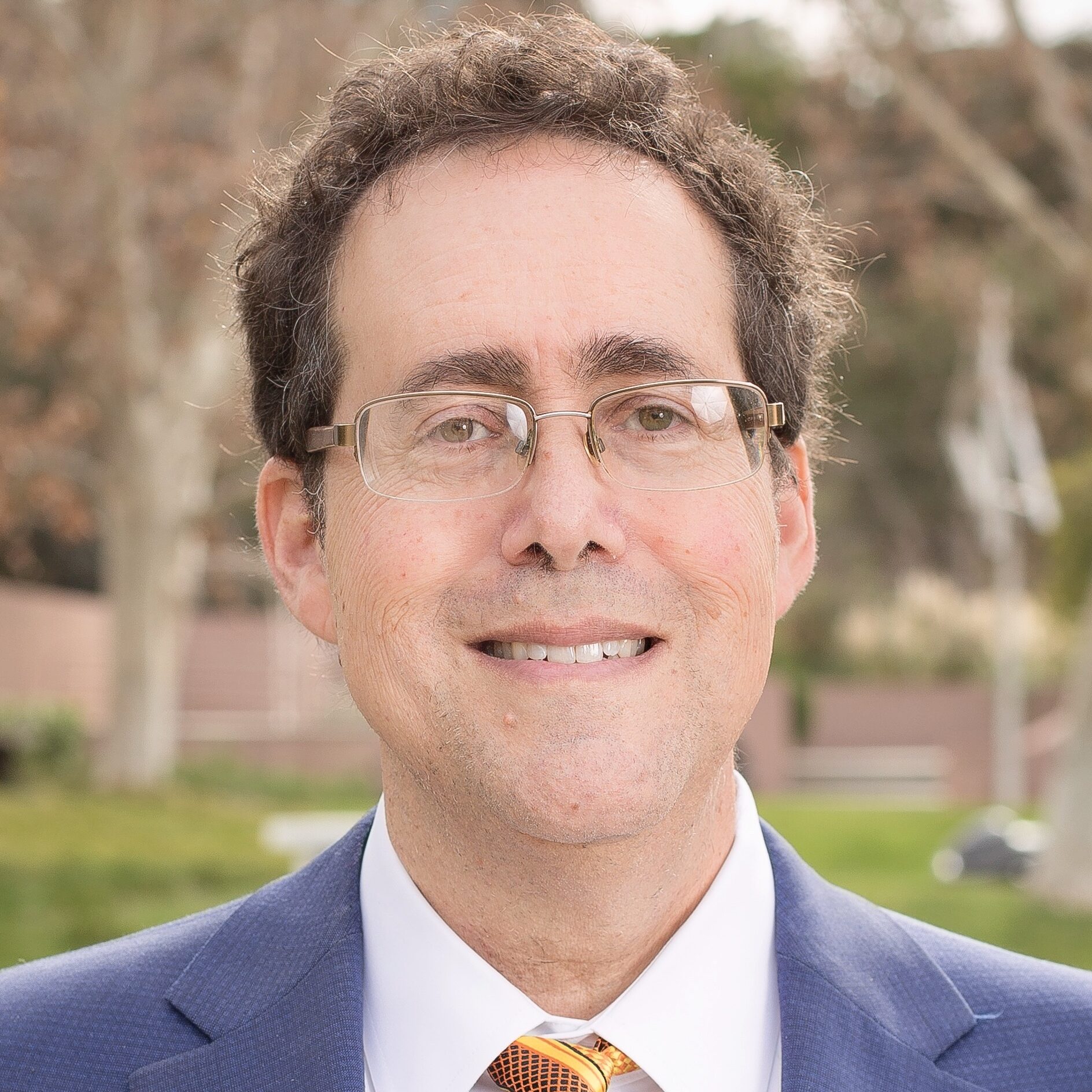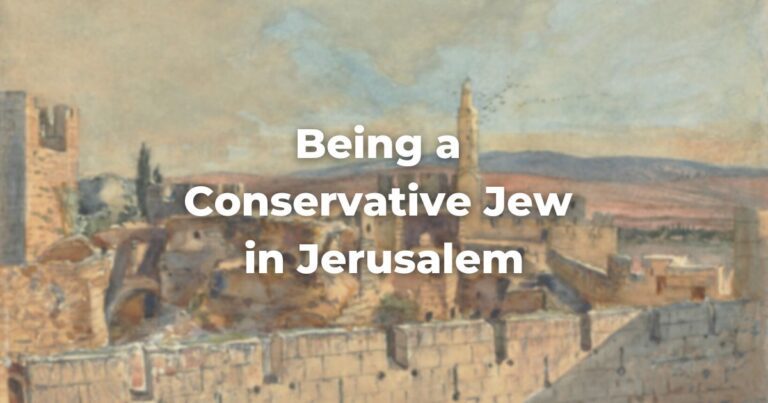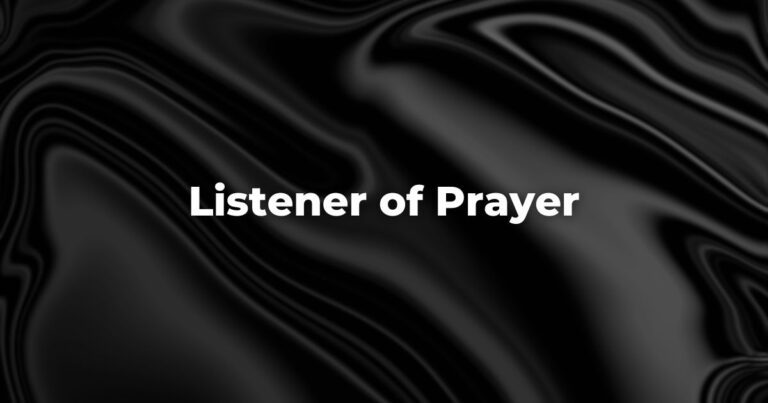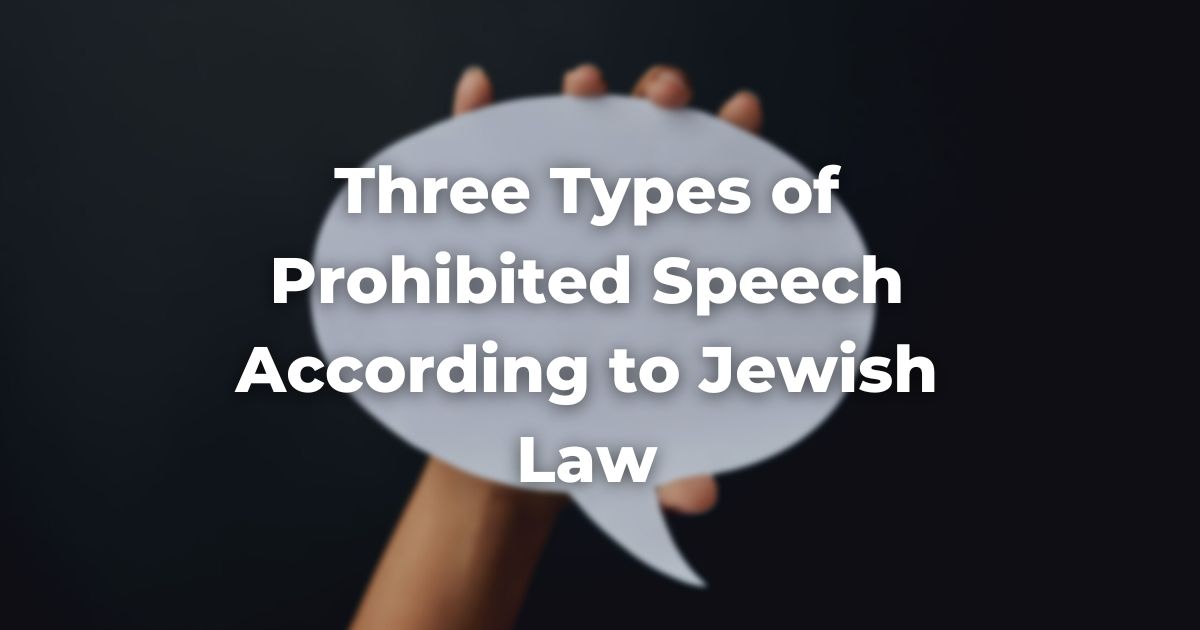In thinking about Conservative Judaism and why Conservative Judaism remains a vital spiritual force, I could not think of any way to approach this other than the personal. So I am going to start from a very personal place.
I am one of those Conservative Jews who found his way to Conservative Judaism having been raised on the margins of Jewish life entirely: As a member of a different movement, but not a very involved member of that movement. I found my way to Conservative Judaism in college, because it offered a Judaism that was at once progressive and traditional, that reached to the past with reverence and honor, and yet honored that past by keeping it open to change as each new generation saw God’s will distilled through a living tradition.
That way of being Jewish spoke to my soul then and speaks to my soul now.
I know no other way to present my love of Conservative Judaism than from the place where I stand. I have said on another occasion to an interdenominational group, that if our numbers continue to decline, I will be the one who picks up the last Silverman Siddur (I guess now I get to use the Harlow), and I will be the last one to attend the last Conservative synagogue.
But I am not going anywhere.
When I was admitted to rabbinical school twenty years ago, they were heady times. I walked into the halls of the Jewish Theological Seminary for my interview and was greeted by two rabbinical students who said: “Are you going to strengthen the Left or the Right?”
“I don’t know,” I said, “I just need to know where the interview is. That’s what I need to know.”
It was a somewhat polarized time, and I knew even then that I needed a way to remember who I am, and to remember who I am called to be as Rav, or I would forget. The distractions of the rabbinate, the demands of our institutions, the kinds of pressures that are brought to bear on public leaders: That sort of pressure makes it virtually impossible to stay true to one’s own essence; to remember who we are meant to be.
In 1985, two years into being a rabbinical student, I wrote the Credo you have in front of you, and I wrote it to myself as a way of remembering who I am in the world. I want to fast-forward for a moment, and then we are going to read it together.
One of the joys of being the Dean of the Ziegler School of Rabbinic Studies at the University of Judaism, is that my students spend their third year of the program studying at the Schechter Rabbinical Seminary in Jerusalem with their fellow rabbinical students from New York, Buenos Aires, and Budapest, so I get 10 days of Aliyah every year visiting them.
While I was there, my friends in the Masorti Movement gifted me with the Siddur, Vaani T’fillati, that the Conservative Movement in Israel has produced. It is, to my mind, the most wonderful Siddur I have ever seen; I love it, and I use it all the time. Imagine my surprise when I came back to the United States and discovered that very Siddur fits inside the ornate silver Siddur case that my in-laws had given me years ago. So, like Conservative Judaism, I daven from a Siddur that is completely and gaudily traditional on the outside, and a little feminist and daring on the inside.
Inside the front cover of the Siddur I have glued my Credo, my אני מאמין, which I make a point of reciting every day.
I have only taught this once before and that was to my students in the Rabbinical School. So I want to apologize to those who consider this inappropriate. I share your sentiment, but I just didn’t know how else to present this material. So if you will just indulge me for a moment:
שני אבני היסוד של מסורת אבותינו ואמותינו – אמירות שאינני יכול להוכיח – אבל אליהן חיי מושתתים:
The two core assertions of traditional Judaism, assertions which I cannot prove but upon which I stake my life:
המושכל הראשון – יי אוהב, רחום, חכם ומשתוקק לצדק ולמשפט.
The first axiom is that God is loving, compassionate, wise, and passionate about justice.
המושכל שני – התורה ומסורת חז’’ל הינם הכלים הנעלים אשר דרכם היהודים נותנים בטוי לרצון יי ומעמידים את הרצון הזה במרכז חיינו ובקהילותינו.
The second is that the TorahRefers to the first five books of the Hebrew Bible, the Tanakh, also called the Five Books of Moses, Pentateuch or the Hebrew equivalent, Humash. This is also called the Written Torah. The term may also refer to teachings that expound on Jewish tradition. and rabbinic tradition is the preeminent vehicle for Jews to articulate a sense of God’s will and to concretize that will in our daily lives and our social structure.
אני מסרב לפסוק הלכה או לדרוש תורה באופן שיראה לעין שיי אכזרי, ואף לא אנתק את הקשר ההדוק בין רצון יי לבין תורתו.
I refuse to read halakhah or the Torah in such a way that it makes God seem cruel, nor will I sever the intimate connection between God’s will and God’s Torah.
צדיק הוא יי. ההלכה מגלמת את אהבתו וצדקתו. ממקור עליון זה שופעת בצורה טבעית קבלה מדורי דורות אשר תוכנה עומק פולחני, רחמים, ויושר חברתי.
God is just, and halakhah embodies God’s love and justice. From these two points, an agenda of ritual profundity, compassion, and social justice emerges organically and traditionally.
We, my friends, stand in that unstable place which asserts that the Creator of the Universe brought us, and all life, into being, as an act of love. We find ourselves called to emulate our Creator by showering our love upon each other.
By expanding rings of love and inclusion, we testify through our deeds and our lives to the love and the justice that are our surest pathways to God. The Torah, although it came to us from God, comes through us; and we believe that God gave us this wonderful Mesorah, tradition, and this wonderful, and living, body of literature, through generations of Israelite sages, prophets, rabbis, and philosophers. Because the Torah is alive, we choose how to prune it, how to shape it, and how to translate it from book into life. A Jew who believes that the book was handed literally and immaculately, can choose to read the book as cruel. But Jews, who have said from the beginning that we have a hand in shaping this book and shaping how it lives in the world, have an obligation to make sure that each and every time we translate Torah into life we do so in a way that God’s love and justice is apparent and clear.
We make our choices: because we are God’s servants; because the greatest privilege we know is to be Jewish; because to stand at the foot of Sinai is to be forever transformed, forever changed, and forever liberated. No Pharaoh can hold sway over us; no Dictator, outside or inside, can force us into habit, or conformity, or dullness. We are a People who have been summoned to approach the world awake, and alive.
For me, Conservative Judaism is that vessel that allows me to stand with integrity in the place of my ancestors, borrowing the Torah from my children.
And being able to bring the holiness that our people, at our best, have ever embodied, takes courage.
You can, if you choose, freeze the tradition, and continue to reenact it; but it is dead. You can, if you wish, do what you wish, and occasionally reference the tradition; but it is naked. The trick in life is to live in a living Torah, to be able to take sustenance from its waters, and to transmit to our children a tradition that reflects God’s wisdom and our own. I remind you that our Torah tells us that the nations of the world are to look at our ways, and by our actions say, “What a wise people, and what a great God.”
Judged by those criteria, we Conservative Jews have a lot of work remaining.
Author
-

Rabbi Dr Bradley Shavit Artson (www.bradartson.com) holds the Abner and Roslyn Goldstine Dean's Chair of the Ziegler School of Rabbinic Studies and is Vice President of American Jewish University in Los Angeles. Rabbi Artson has long been a passionate advocate for social justice, human dignity, diversity and inclusion. He wrote a book on Jewish teachings on war, peace and nuclear annihilation in the late 80s, became a leading voice advocating for GLBT marriage and ordination in the 90s, and has published and spoken widely on environmental ethics, special needs inclusion, racial and economic justice, cultural and religious dialogue and cooperation, and working for a just and secure peace for Israel and the Middle East. A member of the Philosophy Department, he is particularly interested in theology, ethics, and the integration of science and religion. He mentors Camp Ramah in California in Ojai and Ramah of Northern California in the Bay Area. He is also dean of the Zacharias Frankel College in Potsdam, Germany, ordaining Conservative rabbis for Europe. A frequent contributor for the Huffington Post, the Times of Israel, and a Contributing Writer for the Jewish Journal of Greater Los Angeles, he has a public figure Facebook page with over 70,000 likes. Rabbi Artson is the author of 12 books and over 250 articles, most recently Renewing the Process of Creation: A Jewish Integration of Science and Spirit. Married to Elana Artson, they are the proud parents of twins, Jacob and Shira.
View all posts

